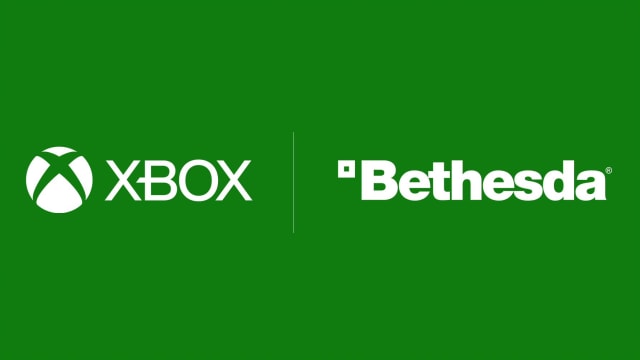Microsoft’s $7.5 billion acquisition of ZeniMax Media is huge news in many ways. It brings renowned studios like Bethesda, id and Arkane into the Xbox family, along with popular franchises including Doom, The Elder Scrolls and Fallout. It makes the Xbox Series X and S more compelling, especially given they’re launching with a relatively weak lineup. (That Halo Infinite delay certainly didn’t help either.) But most importantly, it’s yet another win for Game Pass, as Microsoft has confirmed that Bethesda titles are headed to the subscription service over the coming months.
When I argued that the Xbox Series S was an incredible next-gen deal, Game Pass Ultimate was a big part of that. For $15 a month, you get access to 100 recent titles on console and PC, first-party Microsoft games, Xbox Live, and EA Play. (You could also get Game Pass on its own for $10 a month on consoles and PC, but that doesn’t make much sense since you’ll likely want multiplayer support too.) Now with the upcoming Bethesda titles, and later a likely slew of others from the ZeniMax lineup, Game Pass will be a no-brainer subscription for most Xbox gamers.

Microsoft is now at a crossroads when it comes to handling this influx of new titles. The decisions it makes over the next few years have the potential to fundamentally reshape the gaming industry. Microsoft could either perpetuate the exclusivity war it’s been waging with Sony for years — something that inevitably hurts gamers who only own one system — or it could take the high road where it ends up publishing more titles on competing platforms. (That’s something Microsoft is already doing with Minecraft on the PlayStation 4 and Switch.)
Microsoft Xbox head Phil Spencer told Bloomberg that the company is honoring Bethesda’s deal with Sony to release Deathloop and Ghostwire: Tokyo as PlayStation 5 exclusives for a limited period. Meanwhile, the company plans to bring upcoming Bethesda titles like Starfield on Xbox, Windows PCs and Game Pass, while managing releases on other consoles on a “case-by-case basis,” according to Spencer.
Here’s where things get worrying. Even though Microsoft CEO Satya Nadella says the company plans to make its gaming content “broadly available,” it’s unclear what that means in the future, especially if it needs the cachet of enticing exclusives to fend off Sony’s huge franchises like God of War, Spider-Man and Uncharted.
Microsoft spent most of the last console generation recovering from a bungled launch. The Xbox one cost $100 more than the PlayStation 4 (blame the updated Kinect for that), didn’t have nearly as many compelling games, and was bogged down by the company’s terrible messaging around DRM and used game support. So would you blame Microsoft for keeping its new toys to itself? But, given how much Nadella has pushed Microsoft’s software and services to other platforms like iOS and Android, a similar strategy might make more sense.
Sure, it would be nicer for Microsoft if you could only buy the next Elder Scrolls game only on the Xbox Series X and S. But the company certainly benefits from bringing it to other platforms too — it’ll be able to sell far more copies, for one. And in an era where playing competitive multiplayer games across different consoles is becoming normalized, there’s less of an argument for locking major franchises to a single system (especially if they were previously cross-platform). It’ll be tough to maintain the high road, though, when Sony has a titan like Final Fantasy XVI coming to the PlayStation 5 exclusively. (Microsoft still wins a bit in that case, since FFXVI is also headed to Windows PCs.)
There are also potential issues if Microsoft follows the Apple Arcade route and makes some games exclusive only to Game Pass, with no ability to purchase them without subscribing. That would certainly sell more memberships, but it could be a problem for gamers who don’t want yet another monthly service on their credit card bill. I appreciate Game Pass for the sheer breadth of its library. But if I only cared about one game, it wouldn’t make sense to pay a recurring fee instead of making a one-time $60 or $70 purchase.
I wouldn’t worry too much about that dark timeline, though, as Microsoft’s current Game Pass strategy seems to be working out well enough. The company just announced today that it has 15 million subscribers, and I’d expect that figure to grow quickly once the new consoles launch. (Game Pass Ultimate is also included with the Xbox All Access monthly payment plan for the next-gen consoles.) Currently, you can play Game Pass titles for free, or purchase them at a discount to keep them in your library.
One thing’s for certain: As soon as Microsoft’s ZeniMax acquisition is complete next year (barring any regulatory issues), you won’t be able to say the company doesn’t have enough games.




0 Comments